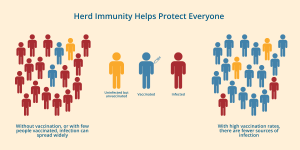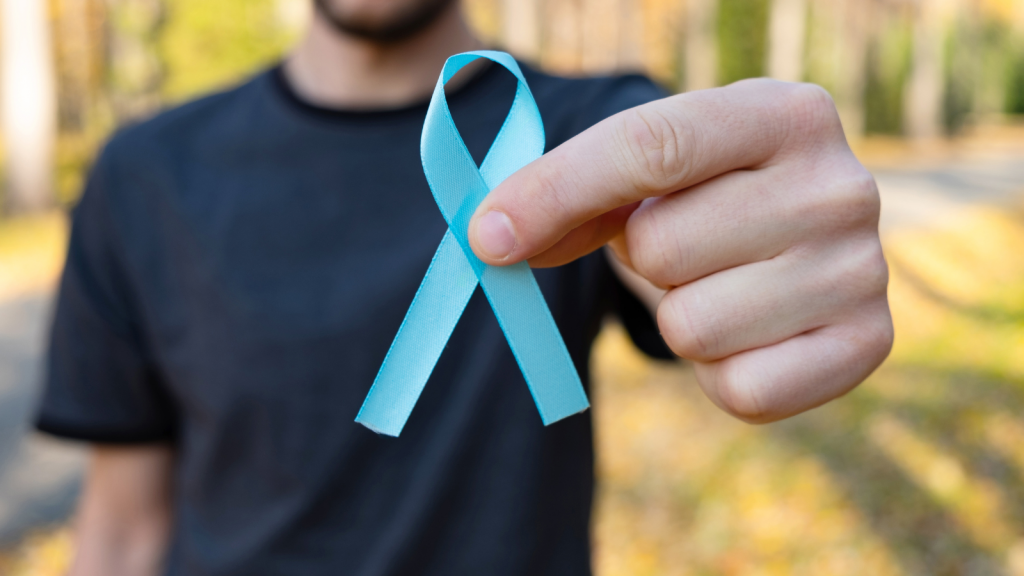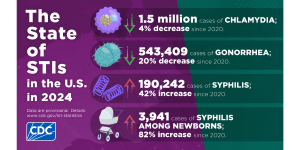 HPV, abnormal Pap tests, follow-up exams and treatments are confusing for the women dealing with them, but what about the boyfriends and husbands? There aren’t many resources to help a baffled guy understand what’s going on with HPV, or how to best support the woman in his life who’s dealing with a diagnosis. Danielle Sepulveres, author of Losing It: The Semi-Scandalous Story of an Ex-Virgin, offers a quick FAQ to help men get a clue.
HPV, abnormal Pap tests, follow-up exams and treatments are confusing for the women dealing with them, but what about the boyfriends and husbands? There aren’t many resources to help a baffled guy understand what’s going on with HPV, or how to best support the woman in his life who’s dealing with a diagnosis. Danielle Sepulveres, author of Losing It: The Semi-Scandalous Story of an Ex-Virgin, offers a quick FAQ to help men get a clue.
Describe the experience of an abnormal Pap. What’s it like when a woman first hears that something is abnormal?
DS: You get that sinking feeling in the pit of your stomach. Most often, there are no symptoms or any warning that something might be abnormal. You just think you’re going in for the annual checkup and then you get a phone call that something’s not quite right. It’s really scary, especially when it happens at a young age (I was 23), because there’s no way you’re prepared for it or expecting to hear something like that.
What does the guy need to do to support the woman when she is first dealing with an abnormal Pap (or a positive HPV test) and is just beginning to let it all sink in? What is it that she’d like to have from him?
He needs to put his girlfriend or wife first. My boyfriend didn’t understand what was happening, so I spent most of the time reassuring him when it should have been the other way around. Instead of going into a panic yourself, she really needs you to be the more stable person. Get yourself informed and educated, and consider going to her appointment so you can ask questions, too. She needs to focus on keeping her cool and calm, so it’s not helpful if the man is just adding to her stress.
The boyfriend or husband is worried about his partner, but also wondering what it all means for him . . .
That’s true, which is why it’s a two-way street and he also needs to be informed. My doctor was wonderful and told me repeatedly that my boyfriend was more than welcome to come and ask questions, and I think most doctors have a similar mentality. They know the guy probably doesn’t understand what’s going on and would like information. I think the main things are to be supportive, be informed, and know what it is you’re talking about instead of blindly fumbling around the subject.
Talk about what it’s like going through follow-up exams such as colposcopy and biopsy.
It was funny for me because I’d never heard of colposcopy and I kept thinking he was saying “colonoscopy”, and I was thinking “What’s THAT got to do with all this?”
It was somewhat painful for me to go through the colposcopy/biopsy; I wasn’t quite prepared for it because a Pap test is so quick, painless, and easy. They had warned me that colposcopy takes longer than a Pap, as they really have to ‘scope you and see what’s going on, so it’s not as quick and simple. Unlike a Pap, with a colposcopy there’s a tendency to have cramping and discomfort from the speculum being inserted for such an extended period of time.
So I found it to be really uncomfortable, even after it’s over. It feels as if your body is rejecting whatever was happing to it, foreign, unnatural feeling of the exam. I remember thinking “Uh oh, if the biopsy shows there really are precancerous cells, what happens next? If this is so uncomfortable, what might an actual treatment be like?” My mind was already racing ahead!
How long does the recovery last after colposcopy/biopsy? Are you okay the next day or how long does it take?
I was fine by the next day. I felt kind of nauseous and sick to my stomach for the rest of the day, and I’m sure stress and nerves contributed to that. I just didn’t feel well for a day or so.
What should the guy do for her that night or the next day? Does he cook her dinner, give her a neck rub, or leave her the heck alone?
I would say he should set her up on the couch or in bed with DVDs of movies she likes, make her dinner but something she can handle in case she’s not feeling well, something light like chicken noodle soup or a comfort food. If she wants to talk about the experience or explain what she’s feeling let her do so, but also respect her and give some space if she doesn’t want to talk about it.
Talk about what it feels like when a woman first hears “HPV.”
I was terrified. I had read maybe one article about HPV and cervical cancer in Cosmo, but hadn’t paid much attention otherwise. My doctor called my work line to deliver my Pap test results, which made me think it was more urgent and “God, this can’t be good!” In the conversation he was reassuring, though, and stressed how common HPV is. He explained how we have options; the abnormal cells are something we can work with.
It just never even occurred to me I was at risk! I was angry about it, and it just felt unfair. I’m faithful, monogamous, only one partner, but there you go.
When you heard “pre-cancer” what went through your mind?
How long does it take to turn into cancer? How do you get rid of it? What if you can’t get rid of it? I also wondered about being with my partner, and if we’d just keep giving it back and forth. I had so many questions, and was lucky to have a doctor who was constantly educating himself so he had the most up to date information. As nervous as I was, my confidence in my doctor made me feel better. I trusted him 100%, feeling sure he knew what to do for me. Having a good rapport with your doctor is essential.
You had two rounds of cryotherapy and a LEEP procedure. Give our men some perspective about that.
They should know the woman feels tired and maybe a bit nauseous. With cryotherapy, the cervix if being frozen which means it has to “melt” and recover, so for the next few weeks -as my doctor put it – the abnormal cells are just popping off and leaving your body. I was just hoping it was working! But it feels like your body is not your own for a few weeks. The second round I had was more intense than the first, so I really didn’t feel well after that one. Even the next day felt a little bit off.
With LEEP, they talk about removing part of your cervix which can potentially cause issues for women who want to get pregnant later. LEEP doesn’t prevent women from getting pregnant, but it can cause some issues when you are pregnant (like premature delivery), and from what I was told it’s just something that needs to be monitored a little more closely versus a woman who hasn’t had a LEEP. Men should know there are so many thoughts racing through her mind, so many worries over things like this.
So again, I encourage guys to do their best to be informed, be supportive, and don’t hesitate to ask questions. I think sometimes men are uneasy to bring it up, but it’s better to ask questions and know rather than being afraid to talk about it. It’s good for the woman to see he’s involved, engaged, and just making an effort to be there for her.


 HPV, abnormal Pap tests, follow-up exams and treatments are confusing for the women dealing with them, but what about the boyfriends and husbands? There aren’t many resources to help a baffled guy understand what’s going on with HPV, or how to best support the woman in his life who’s dealing with a diagnosis. Danielle Sepulveres, author of
HPV, abnormal Pap tests, follow-up exams and treatments are confusing for the women dealing with them, but what about the boyfriends and husbands? There aren’t many resources to help a baffled guy understand what’s going on with HPV, or how to best support the woman in his life who’s dealing with a diagnosis. Danielle Sepulveres, author of 





